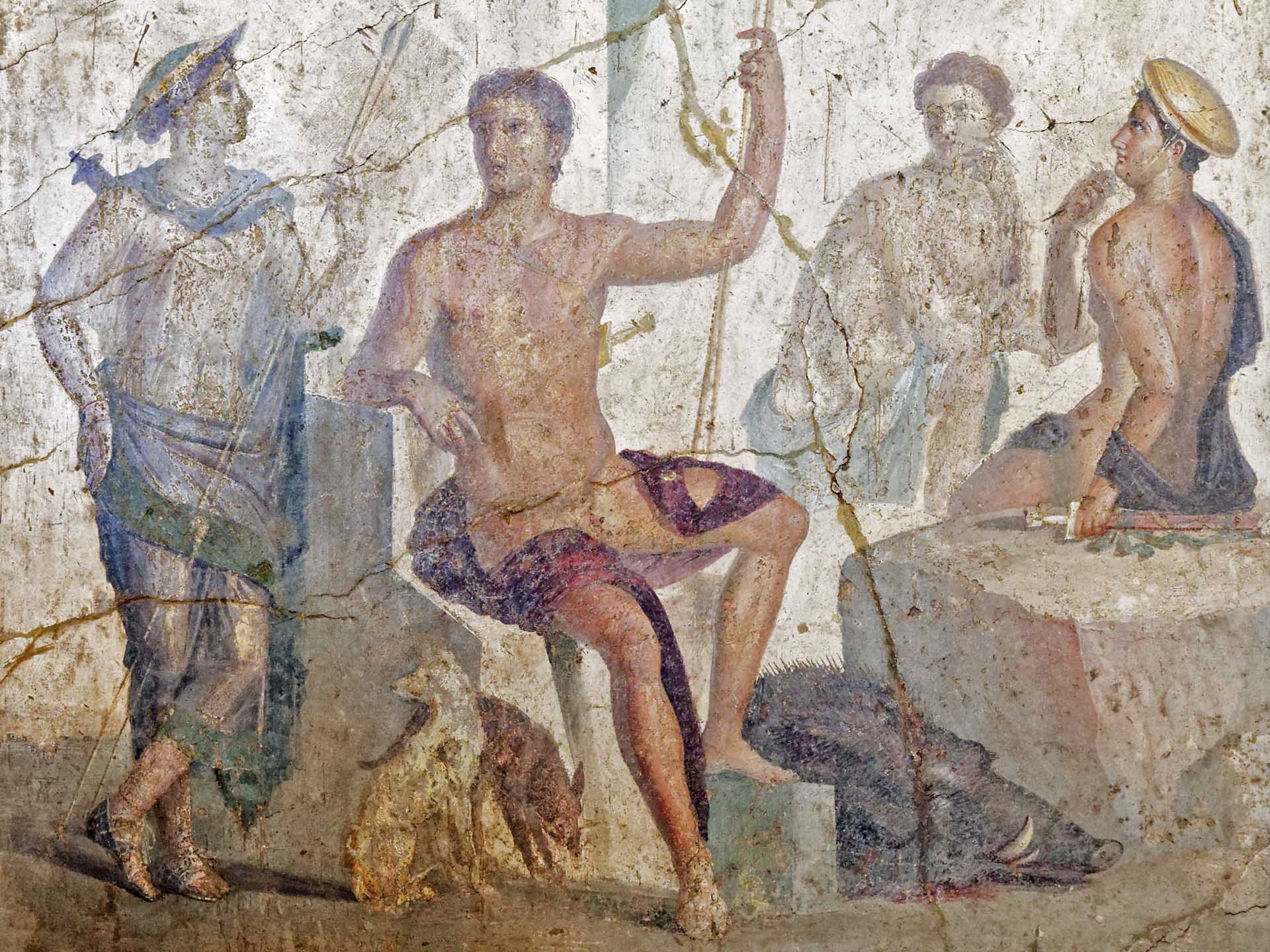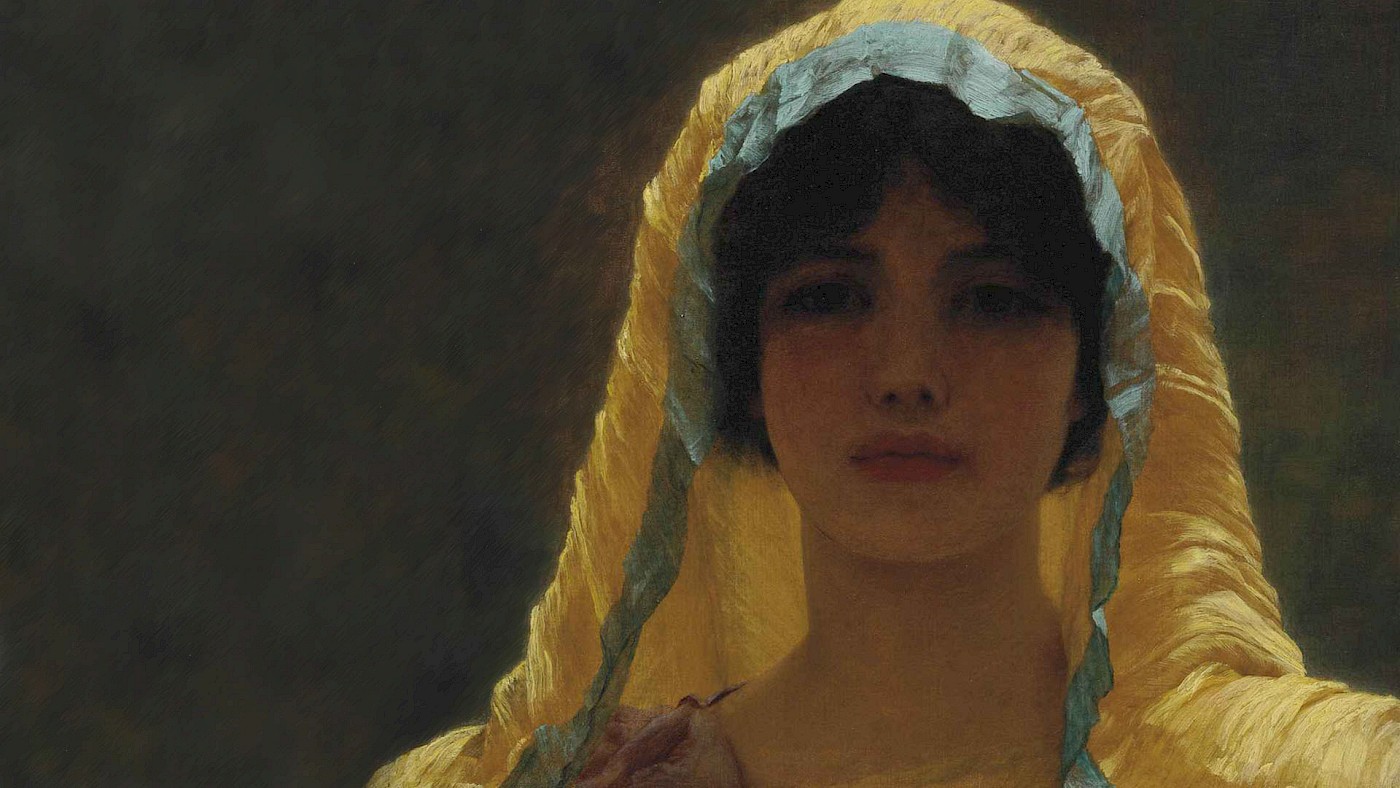When it comes to Greek mythology, men dominate; heroes like Jason, Theseus, Heracles, and Achilles. But women nevertheless figure prominently in many stories. After all, Theseus would never have been able to defeat the Minotaur if Ariadne hadn’t helped him out. Likewise, Jason’s endeavour to acquire the Golden Fleece would have ended in failure without the assistance rendered by Medea.
Most of the women that feature in these stories don’t take centre stage. They are there to help the male heroes, to fall in love with them and be whisked away. Some of them are unceremoniously discarded at some point: Theseus abandoned Ariadne on his way back to Athens and Jason famously betrayed Medea, leading her to kill their children by way of revenge.
But not all women in Greek mythology are relegated to the status of supporting characters. One ancient Greek female figure who is a heroine in her own right is Atalanta. According to the stories that have come down to us, she was as formidable as any man: high praise in an ancient context.
A heroine from the wilds
There is some uncertainty as regards Atalanta’s place of birth. According to some sources, such as the Ehoiai attributed to the poet Hesiod (fl. ca. 700 BC), Atalanta was the daughter of Schoeneus, a king of Boeotia in Central Greece. Other sources, such as the Bibliotheca, an ancient compendium of Greek myths and legends (wrongly) attributed to Apollodorus, say that she was the daughter of King Iasus from Arcadia, the mountainous centre of the Peloponnese (Southern Greece).
Some commentators have attempted to explain away this discrepancy. It has been suggested that Schoeneus perhaps at one point moved from Boeotia to Arcadia. An alternate explanation posits the idea that there were, in fact, two heroines, both named Atalanta, and that one of them heralded from Boeotia while the other was born in Atalanta. Of course, such differences needn’t be explained at all: there were often multiple versions of ancient stories floating around, each of which suited a particular context.
According to the Bibliotheca, Atalanta’s father had desired a son and was sorely disappointed by the birth of a girl. Since outright murdering the baby was taboo in the ancient world, he ordered the infant to left in the mountains, where she was to die of exposure. However, when hunters later happened upon the infant they discovered that she was being nursed by a bear. They adopted her and raised her to become a huntress. She was later reunited with her father, who was pleased that she had grown up to be as strong, as fierce, and as capable as any man.

A popular figure in Greek mythology and art, she’s often included among the cast of characters of other Greek tales. According to some, she joined Jason of Iolcus on his expedition to retrieve the Golden Fleece as one of the Argonauts. Later, at the funeral games organized for Pelias, Jason’s evil uncle, Atalanta took part in a wrestling match against Peleus (the father of Achilles), and won.
Perhaps the most famous adventure that Atalanta took part in was the hunt for the Caledonian Boar. This fearsome creature had been sent by the goddess Artemis as punishment for King Oeneus not honouring the goddess properly. The hunter Meleager organized a large hunting party, inviting heroes from all over Greece to take part in their attempt to kill the monstrous animal; Atalanta joined the chase. Meleager was so taken by her that he offered her the Calydonian Boar’s skin after they had successfully killed it, spawning a dispute with his uncles that ultimately led to the deaths of these men, Meleager’s mother, and Meleager himself.
A deadly footrace
As a huntress, Atalanta had devoted herself to the goddess Artemis. Artemis was a virgin goddess: as a result, Atalanta similarly refused all male advances. Whenever a male suitor refused to take “No” for an answer, she would challenge him to a footrace. According to some writers, the race was organized after her father pressured her to pick a man to marry.
In any event, the rules for the footrace were simple. If the suitor won, he would be allowed to marry Atalanta. But if she won the race, she would be in her right to kill him immediately. Naturally, none of the men who attempted to best her in the race succeeded, resulting in the deaths of a whole slew of prospective husbands.
Despite the dangers, Atalanta continued to attract attention from men throughout Greece. One of these hopefuls was a man called Hippomenes. He realized that he would never be able to beat her in a fair contest and so prayed to Aphrodite, the goddess of love, for assistance. Aphrodite answered his plea by giving him three golden apples and a bit of advice. According to some sources, Atalanta was confident enough to give her suitor a head start.

Hippomenes ran as fast as he could, but it wasn’t long before he heard Atalanta close in on him. As she drew closer, he dropped one of the golden apples. Surprised, and taken with its golden lustre, Atalanta stopped to collect the apple. Hippomenes did this two more times and so was able to win the footrace and marry Atalanta. (Some sources add that Atalanta had actually fallen in love with Hippomenes, but couldn’t back out of the challenge she had subjected the other suitors to.)
Needless to say, the idea that women are easily distracted by something shiny is rather sexist to say the least, but we are talking about a story produced more than two thousand years ago in a very male-centric society. A story like this would today, quite rightly, be rejected outright.
Cursed by the gods
Hippomenes and Atalanta got married. But if you thought they would live happily ever after, you’re mistaken. In Greek mythology, most stories don’t have a happy end.
The Roman poet Ovid, in his Metamorphoses, provides one of the fullest accounts of what happened to them. Hippomenes had forgotten to thank Aphrodite properly for helping him win the footrace. In anger, Aphrodite made the couple succumb to passion inside the temple of Cybele (an Anatolian goddess worshipped in Rome as the “Great Mother”). Other sources claim that the deity whose temple had been defiled was none other than the king of the Olympians himself, Zeus.
In any event, making love on holy ground was strictly prohibited in ancient times, as it caused religious pollution (called miasma). Angered by this outrage, Cybele turned Atalanta and Hippomenes into lions and yoked them to her chariot: in ancient times, people believed that lions were incapable of mating with each other, only with leopards.
Further reading
The story of Atalanta, including major sources, is summarized by Timothy Gantz in his two-volume work Early Greek Myths (1993), pp. 335–339. More accessible is Robin Hard’s Routledge Handbook of Greek Mythology (2004), pp. 545–547. Hard’s book is a reworking of the classic handbook by H.J. Rose. For Atalanta in art, T.H. Carpenter’s Art and Myth in Ancient Greece (1991) is a useful starting point.
